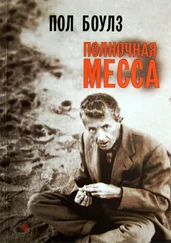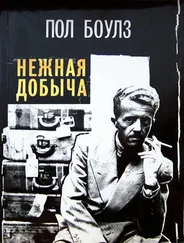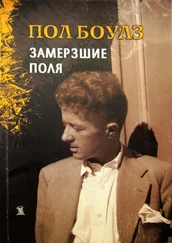Пол Боулз - Let it come down
Здесь есть возможность читать онлайн «Пол Боулз - Let it come down» весь текст электронной книги совершенно бесплатно (целиком полную версию без сокращений). В некоторых случаях можно слушать аудио, скачать через торрент в формате fb2 и присутствует краткое содержание. ISBN: , Жанр: Современная проза, на английском языке. Описание произведения, (предисловие) а так же отзывы посетителей доступны на портале библиотеки ЛибКат.
- Название:Let it come down
- Автор:
- Жанр:
- Год:неизвестен
- ISBN:1-931082-19-7
- Рейтинг книги:5 / 5. Голосов: 1
-
Избранное:Добавить в избранное
- Отзывы:
-
Ваша оценка:
- 100
- 1
- 2
- 3
- 4
- 5
Let it come down: краткое содержание, описание и аннотация
Предлагаем к чтению аннотацию, описание, краткое содержание или предисловие (зависит от того, что написал сам автор книги «Let it come down»). Если вы не нашли необходимую информацию о книге — напишите в комментариях, мы постараемся отыскать её.
Let it come down — читать онлайн бесплатно полную книгу (весь текст) целиком
Ниже представлен текст книги, разбитый по страницам. Система сохранения места последней прочитанной страницы, позволяет с удобством читать онлайн бесплатно книгу «Let it come down», без необходимости каждый раз заново искать на чём Вы остановились. Поставьте закладку, и сможете в любой момент перейти на страницу, на которой закончили чтение.
Интервал:
Закладка:
Let it come down
by Paul Bowles
Banquo: it will be rain tonight
First murderer: let it come down
(stabs Banquo)
Macbeth, Act iii scene 31
International Zone
I
It was night by the time the little ferry drew up alongside the dock. As Dyar went down the gangplank a sudden gust of wind threw warm raindrops in his face. The other passengers were few and poorly dressed; they carried their things in cheap cardboard valises and paper bags. He watched them standing resignedly in front of the customs house waiting for the door to be opened. A half-dozen disreputable Arabs had already caught sight of him from the other side of the fence and were shouting at him. «Hotel Metropole, mister!» «Hey, Johnny! Come on!» «You want hotel?» «Grand Hotel, hey!» It was as if he had held up his American passport for them to see. He paid no attention. The rain came down in earnest for a minute or so. By the time the official had opened the door he was uncomfortably wet.
The room inside was lighted by three oil lamps placed along the counter, one to an inspector. They saved Dyar until last, and all three of them went through his effects very carefully, without a gleam of friendliness or humor. When he had repacked his grips so they would close, they marked them with lavender chalk and reluctantly let him pass. He had to wait in line at the window over which was printed Policia . While he was standing there a tall man in a visored cap caught his attention, calling: «Taxi!» The man was decently dressed, and so he signaled yes with his head. Straightway the man in the cap was embroiled in a struggle with the others as he stepped to take the luggage. Dyar was the only prey that evening. He turned his head away disgustedly as the shouting figures followed the taxi-driver out the door. He felt a little sick anyway.
And in the taxi, as the rain pelted the windshield and the squeaking wipers rubbed painfully back and forth on the glass, he went on feeling sick. He was really here now; there Was no turning back. Of course there never had been any question of turning back. When he had written he would take the job and had bought his passage from New York, he had known his decision was irrevocable. A man does not change his mind about such things when he has less than five hundred dollars left. But now that he was here, straining to see the darkness beyond the wet panes, he felt for the first time the despair and loneliness he thought he had left behind. He lit a cigarette and passed the pack to the driver.
He decided to let the driver determine for him where he would stay. The man was an Arab and understood very little English, but he did know the words cheap and clean. They passed from the breakwater onto the mainland, stopped at a gate where two police inspectors stuck their heads in through the front windows, and then they drove slowly for a while along a street where there were a few dim lights. When they arrived at the hotel the driver did not offer to help him with his luggage, nor was there any porter in sight. Dyar looked again at the entrance: the façade was that of a large modern hotel, but within the main door he saw a single candle burning. He got down and began pulling out his bags. Then he glanced questioningly at the driver who was watching him empty the cab of the valises; the man was impatient to be off.
When he had set all his belongings on the sidewalk and paid the driver, he pushed the hotel door open and saw a young man with smooth black hair and a dapper moustache sitting at the small reception desk. The candle provided the only light. He asked if this were the Hotel de la Playa, and did not know whether he was glad or sorry to hear that it was. Getting his bags into the lobby by himself took a little while. Then, led by a small boy who carried a candle, he climbed the stairs to his room; the elevator was not working because there was no power.
They climbed three flights. The hotel was like an enormous concrete resonating chamber; the sound of each footstep, magnified, echoed in all directions. The building had the kind of intense and pure shabbiness attained only by cheap new constructions. Great cracks had already appeared in the walls, bits of the decorative plaster mouldings around the doorways had been chipped off, and here and there a floor tile was missing.
When they reached the room the boy went in first and touched a match to a new candle that had been stuck in the top of an empty Cointreau bottle. The shadows shot up along the walls. Dyar sniffed the close air with displeasure. The odor in the room suggested a mixture of wet plaster and unwashed feet.
«Phew! It stinks in here,» he said. He looked suspiciously at the bed, turned the stained blue spread back to see the sheets.
Opposite the door there was one large window which the boy hastened to fling open. A blast of wind rushed in out of the darkness. There was the faint sound of surf. The boy said something in Spanish, and Dyar supposed he was telling him it was a good room because it gave on the beach. He did not much care which way the room faced: he had not come here on a vacation. What he wanted at the moment was a bath. The boy shut the window and hurried downstairs to get the luggage. In one corner, separated from the rest of the room by a grimy partition, was a shower with gray concrete walls and floor. He tried the tap marked caliente and was surprised to find the water fairly hot.
When the boy had brought the valises, piled them in the wrong places, received his tip, had difficulty in closing the door, and finally gone away leaving it ajar, Dyar moved from the window where he had been standing fingering the curtains, looking out into the blackness. He slammed the door shut, heard the key fall tinkling to the floor in the corridor. Then he threw himself on the bed and lay a while staring at the ceiling. He must call Wilcox immediately, let him know he had arrived. He turned his head and tried to see if there was a telephone on the low night table by the bed, but the table lay in the shadow of the bed’s footboard, and it was too dark there to tell.
This was the danger point, he felt. At this moment it was almost as though he did not exist. He had renounced all security in favor of what everyone had assured him, and what he himself suspected, was a wild goose chase. The old thing was gone beyond recall, the new thing had not yet begun. To make it begin he had to telephone Wilcox, yet he lay still. His friends had told him he was crazy, his family had remonstrated with him both indignantly and sadly, but for some reason about which he himself knew very little, he had shut his ears to them all. «I’m fed up!» he would cry, a little hysterically. «I’ve stood at that damned window in the bank for ten years now. Before the war, during the war, and after the war. I can’t take it any longer, that’s all!» And when the suggestion was made that a visit to a doctor might be indicated, he laughed scornfully, replied: «There’s nothing wrong with me that a change won’t cure. Nobody’s meant to be confined in a cage like that year after year. I’m just fed up, that’s all». «Fine, fine,» said his father. «Only what do you think you can do about it?» He had no answer to that. During the depression, when he was twenty, he had been delighted to get a job in the Transit Department at the bank. All his friends had considered him extremely fortunate; it was only his father’s friendship with one of the vice-presidents which had made it possible for him to be taken on at such a time. Just before the war he had been made a teller. In those days when change was in the air nothing seemed permanent, and although Dyar knew he had a heart murmur, he vaguely imagined that in one way or another it would be got around so that he would be given some useful wartime work.
Читать дальшеИнтервал:
Закладка:
Похожие книги на «Let it come down»
Представляем Вашему вниманию похожие книги на «Let it come down» списком для выбора. Мы отобрали схожую по названию и смыслу литературу в надежде предоставить читателям больше вариантов отыскать новые, интересные, ещё непрочитанные произведения.
Обсуждение, отзывы о книге «Let it come down» и просто собственные мнения читателей. Оставьте ваши комментарии, напишите, что Вы думаете о произведении, его смысле или главных героях. Укажите что конкретно понравилось, а что нет, и почему Вы так считаете.









